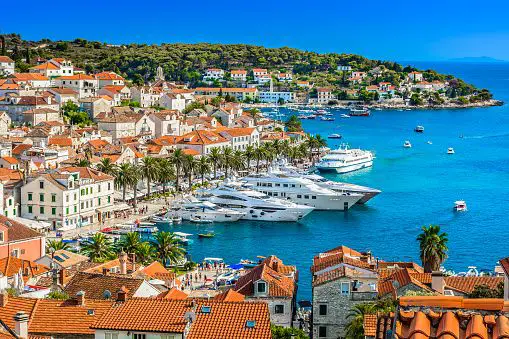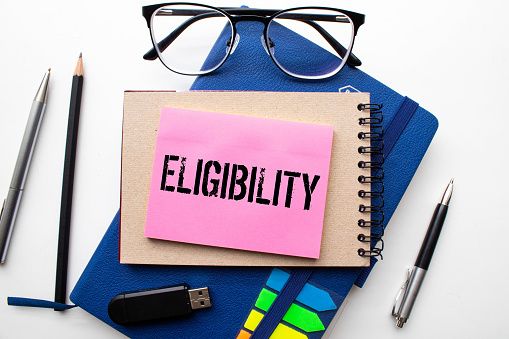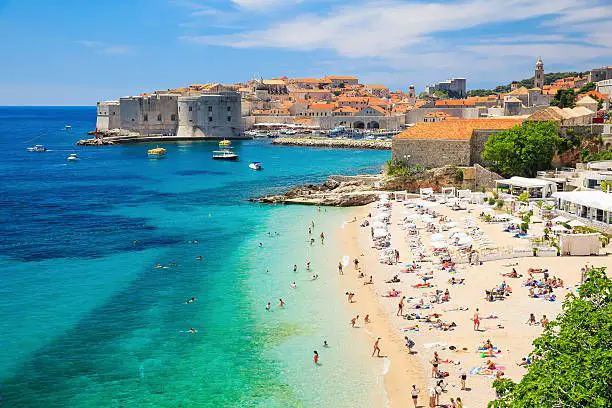Croatia Digital Nomad Visa

Croatia has launched a digital nomad visa program for non-European Union (EU) citizens who can work remotely from anywhere in the world. The program allows digital nomads to stay in Croatia for up to a year while they work remotely for clients or employers located outside of Croatia.
Here are some key details about the Croatia digital nomad visa:
Eligibility

To be eligible for the Croatia digital nomad visa, non-EU citizens must meet the following requirements:
Proof of remote work: Applicants must provide proof that they are employed or self-employed and can work remotely for clients or employers located outside of Croatia. This can include a work contract, a letter from an employer, or proof of self-employment.
Income requirement: Applicants must have a minimum monthly income of around €2,000, which can be from their remote work or other sources of income.
Health insurance: Applicants must have valid health insurance that covers them for the entire duration of their stay in Croatia.
Accommodation: Applicants must provide proof of accommodation in Croatia, such as a rental agreement or a confirmation from a hotel or other accommodation provider.
Clean criminal record: Applicants must provide a certificate of no criminal record from their home country or the country where they have resided for the last 12 months.
Application fee: Applicants must pay an application fee of around €200 when submitting their application.
It's worth noting that the above requirements are subject to change and that applicants should consult the official Croatian government website for the most up-to-date information.
Additionally, meeting the above requirements does not guarantee approval of the visa application, and the Croatian authorities may request additional documents or information as part of the application process.
Application process

The application process for the Croatia digital nomad visa typically involves the following steps:
Gather required documents: Applicants must gather the required documents, which typically include proof of remote work, income, health insurance, accommodation, and a certificate of no criminal record.
Complete the application form: Applicants must complete the online application form or submit a paper application at the Croatian embassy or consulate in their home country.
Pay the application fee: Applicants must pay the non-refundable application fee, which is around €200, at the time of application.
Submit the application: Applicants must submit their completed application and supporting documents to the Croatian authorities. This can be done online or at the Croatian embassy or consulate in their home country.
Wait for a decision: The Croatian authorities will review the application and may request additional information or documents. Applicants should allow up to 30 days for a decision to be made.
Collect the visa: If the application is approved, the applicant will be notified and must collect their visa from the Croatian embassy or consulate in their home country. The visa will typically be valid for up to one year.
It's important to note that the application process may vary depending on the applicant's country of origin and other factors.
Applicants should consult the official Croatian government website for the most up-to-date information on the application process and requirements.
Benefits

The Croatia digital nomad visa provides several benefits for remote workers who want to live and work in Croatia, including:
Flexibility: The visa allows digital nomads to live and work in Croatia for up to one year without the need for a work permit or residency permit. This provides flexibility for remote workers who want to experience Croatia's culture and lifestyle while continuing to work for clients or employers located outside of Croatia.
Family members: Digital nomads can bring their family members with them on the visa, including spouses and dependent children.
Affordable cost of living: Croatia has a relatively low cost of living compared to other European countries, which makes it an attractive destination for digital nomads who want to stretch their budget.
Beautiful scenery: Croatia is known for its beautiful coastline, historic cities, and natural landscapes. Digital nomads can take advantage of their time in Croatia to explore the country's natural beauty and cultural offerings.
Boosting the local economy: The digital nomad visa program helps to attract skilled professionals to Croatia, which can boost the local economy by increasing demand for local goods and services.
Networking opportunities: Digital nomads in Croatia can connect with other remote workers and entrepreneurs, which can lead to networking opportunities and collaborations.
In summary, the Croatia digital nomad visa provides several benefits for remote workers who want to live and work in Croatia, including flexibility, affordability, beautiful scenery, and networking opportunities.
Cost

The cost of the Croatia digital nomad visa varies depending on the applicant's country of origin, as well as other factors such as the length of stay and the type of visa applied for. However, here are some approximate costs:
Application fee: The application fee for the Croatia digital nomad visa is around €200. This fee is non-refundable and must be paid at the time of application.
Health insurance: Digital nomads are required to have valid health insurance that covers them for the entire duration of their stay in Croatia.
The cost of health insurance varies depending on the provider and the level of coverage required.
Accommodation: The cost of accommodation in Croatia varies depending on the location, type of accommodation, and length of stay.
However, Croatia is known for having a relatively low cost of living compared to other European countries, which makes it an attractive destination for digital nomads.
Transportation: The cost of transportation in Croatia varies depending on the mode of transportation and the distance traveled.
Public transportation is generally affordable, and many cities in Croatia are walkable or bike-friendly.
It's worth noting that the above costs are subject to change and that applicants should consult the official Croatian government website for the most up-to-date information on visa costs and requirements.
Additionally, applicants should budget for additional expenses such as food, entertainment, and travel while living in Croatia.
Living in Croatia

Croatia is a beautiful country with a rich cultural heritage and a Mediterranean climate, making it an attractive destination for digital nomads who are looking for a place to live and work. Here are some things to know about living in Croatia:
Cost of living: The cost of living in Croatia is relatively affordable compared to other European countries. Accommodation, food, and transportation are generally affordable, and digital nomads can find a range of options to suit their budget and lifestyle.
Climate: Croatia has a Mediterranean climate, with warm summers and mild winters. The coast has a Mediterranean climate, while the inland areas have a continental climate. Summers can be hot and humid, while winters can be cool and rainy.
Language: The official language of Croatia is Croatian, which is a Slavic language. English is widely spoken, especially in major cities and tourist areas.
Culture and cuisine: Croatia has a rich cultural heritage and a diverse cuisine that draws on its Mediterranean and Central European influences. The country is known for its historic cities, beautiful coastline, and natural landscapes.
Safety: Croatia is generally a safe country with a low crime rate. However, as with any destination, digital nomads should take common-sense precautions to ensure their safety.
Connectivity: Croatia has a well-developed telecommunications infrastructure, with high-speed internet widely available in major cities and towns. This makes it an attractive destination for digital nomads who require reliable internet access for work.
Conclusion
In summary, Croatia offers digital nomads an affordable cost of living, beautiful scenery, and a rich cultural heritage.
The country is generally safe and has a well-developed telecommunications infrastructure, making it an attractive destination for remote workers who are looking for a place to live and work.
Croatia digital nomad visa program provides an opportunity for remote workers to experience Croatia's culture, scenery, and lifestyle while working remotely.
The program also benefits Croatia by attracting skilled professionals, boosting the local economy, and promoting the country as a digital nomad-friendly destination.
It's worth noting that digital nomads on the Croatia visa are not allowed to work for Croatian companies or clients.
They must continue to work for clients or employers outside of Croatia. Additionally, digital nomads on the visa must comply with Croatian laws and regulations, including tax laws.
In summary, the Croatia digital nomad visa program is a great opportunity for non-EU citizens to live and work remotely in Croatia for up to a year.
It offers a chance to experience Croatia's rich culture, beautiful landscapes, and affordable cost of living, while providing the flexibility to work remotely.
